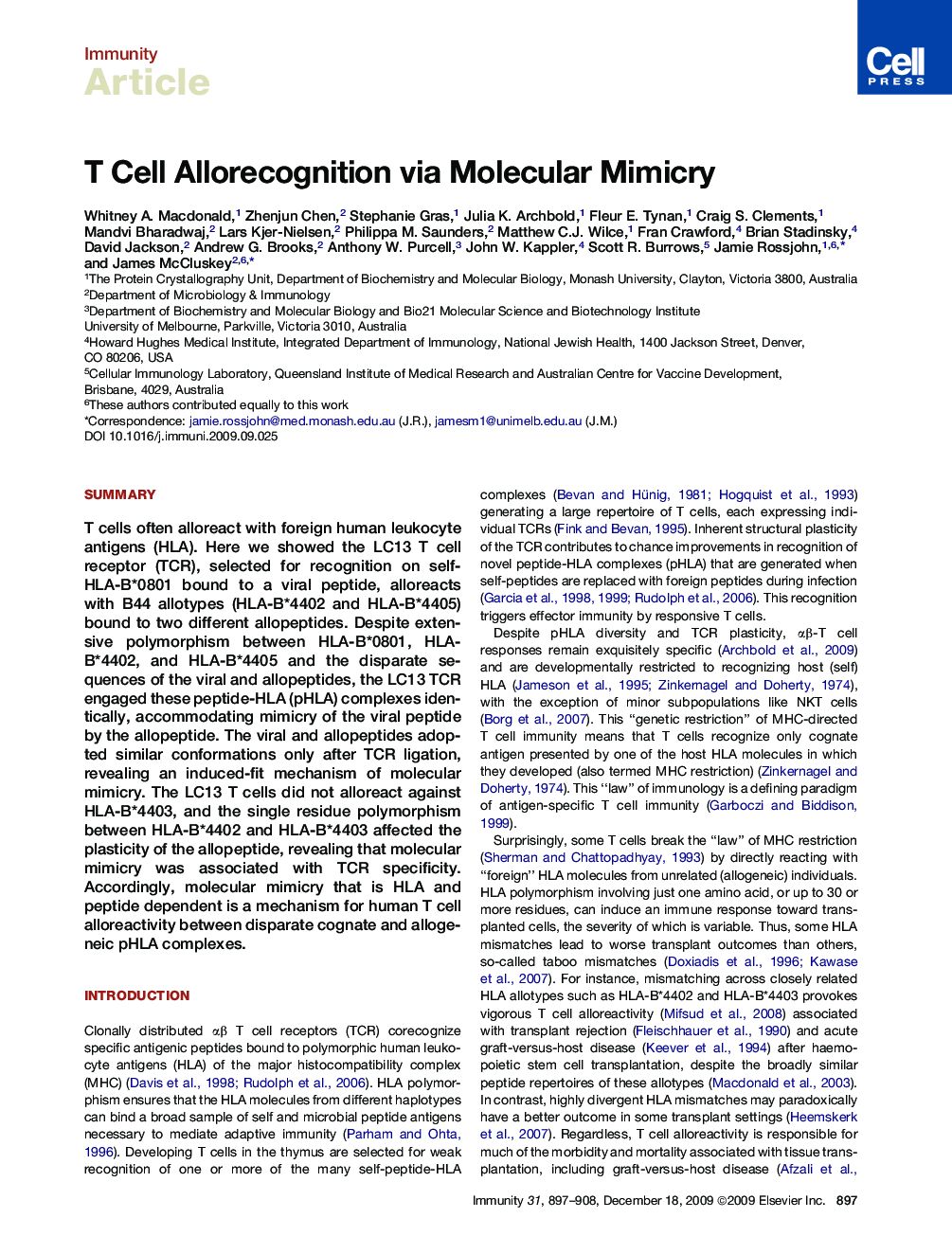| کد مقاله | کد نشریه | سال انتشار | مقاله انگلیسی | نسخه تمام متن |
|---|---|---|---|---|
| 3353782 | 1216889 | 2009 | 12 صفحه PDF | دانلود رایگان |

SummaryT cells often alloreact with foreign human leukocyte antigens (HLA). Here we showed the LC13 T cell receptor (TCR), selected for recognition on self-HLA-B∗0801 bound to a viral peptide, alloreacts with B44 allotypes (HLA-B∗4402 and HLA-B∗4405) bound to two different allopeptides. Despite extensive polymorphism between HLA-B∗0801, HLA-B∗4402, and HLA-B∗4405 and the disparate sequences of the viral and allopeptides, the LC13 TCR engaged these peptide-HLA (pHLA) complexes identically, accommodating mimicry of the viral peptide by the allopeptide. The viral and allopeptides adopted similar conformations only after TCR ligation, revealing an induced-fit mechanism of molecular mimicry. The LC13 T cells did not alloreact against HLA-B∗4403, and the single residue polymorphism between HLA-B∗4402 and HLA-B∗4403 affected the plasticity of the allopeptide, revealing that molecular mimicry was associated with TCR specificity. Accordingly, molecular mimicry that is HLA and peptide dependent is a mechanism for human T cell alloreactivity between disparate cognate and allogeneic pHLA complexes.
Journal: - Volume 31, Issue 6, 18 December 2009, Pages 897–908